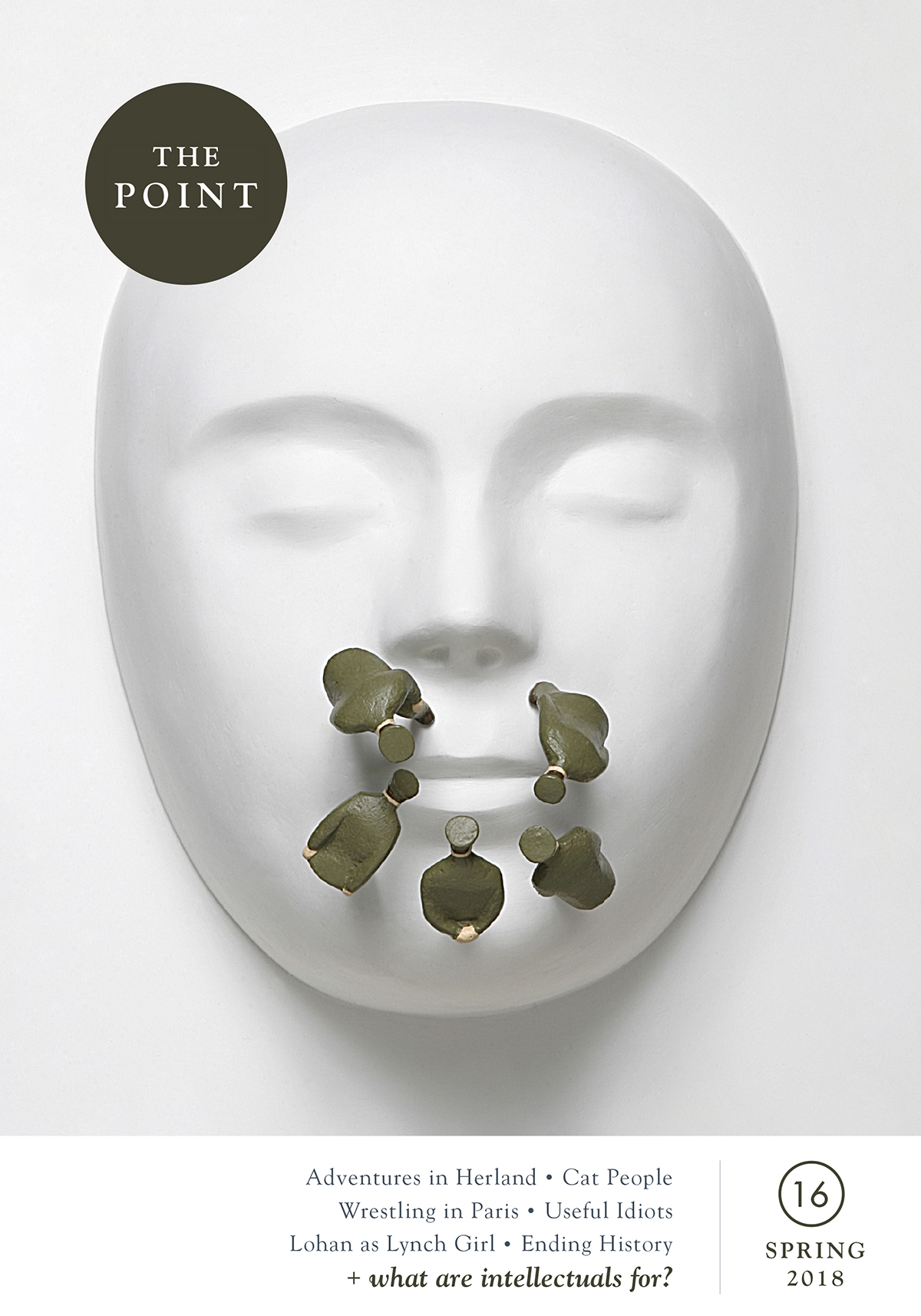The Point 16: What are intellectuals for?
by
multiple authors
(editors)
The Point 16: What are intellectuals for?
by
multiple authors
(editors)
[...] Gessen is a great fan of Brodsky the poet, but wishes he would be more of a critic. In a New Yorker essay from 2011, he condemned Brodsky for allowing himself to become a “propagandist for poetry.” Gessen searched Brodsky’s oeuvre in vain for an example that might undercut the unapologetic aestheticism that had “hardened into dogma.” Not unlike the judge, Gessen seemed to demand of Brodsky, How were you useful to the motherland? How could someone of Brodsky’s intelligence actually believe that aesthetics governs ethics and not the other way around?
As if cautious not to repeat the mistakes of Brodsky’s generation, Gessen has embraced his public role in his own career as an intellectual. He co-founded n+1 in 2004 with some fellow Harvard grads in New York City, and, in 2011, when a thousand protesters set up camp in Zuccotti Park, they eagerly joined the movement. Being academic types, they were less experienced than some of the other Occupiers when it came to practical matters of governance or logistics, so they contributed the way they knew how: they wrote and theorized. They published blog posts and put together a broadsheet called the Occupy! Gazette. In Occupy!, the anthology of reflections from these heady months that he co-edited with Astra Taylor and the other editors of n+1, Gessen acknowledged the split within the park between those “highly educated” organizers and intellectuals like himself, who were “mostly in their late twenties and thirties, and mostly not living in the park,” and the “kids who actually do live in the park.” This division, he suggested, is not as bad as it might seem. Some dismissed the twenty-year-olds in the camp as crust punks or anarchists, but he admired their youthful idealism. At least they were doing something. “They actually think that coming to a faraway city and living in a concrete park could lead to political change,” he marveled. “And they may be right!”
fascinating

